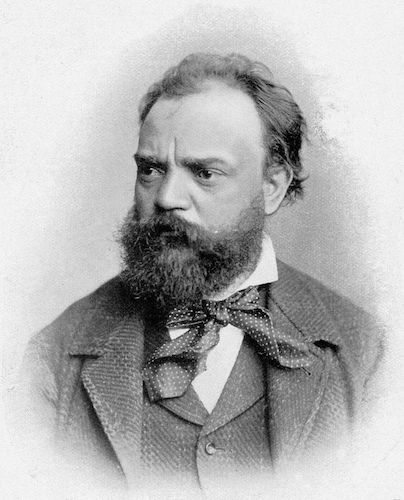Boston Artists Ensemble visits Salem with a glowing tribute to a musical friendship

Antonin Dvořák’s String Sextet in A Major was performed in Salem Friday night by the Boston Artists Ensemble.
For forty years, the Boston Artists Ensemble has ventured into suburbs with programs that are as intriguing and inviting as the performance spaces they pick out for their field trips. Friday night was no exception. Hamilton Hall in Salem, a National Historic Landmark built in 1805-1807, proved to be an ideal setting for a concert exploring the friendship of Antonin Dvořák and Johannes Brahms — composers who wrote in vastly different styles but respected and admired one another.
Brahms provided inspiration and crucial early career support to the younger Dvořák, who in turn dedicated his String Sextet in A Major to Brahms. Heard in this congenial space, the Dvořák sextet — paired on Friday with Brahms’ own String Sextet No. 1 in B-flat major — exuded a warmth that still lingers from that deep personal and professional relationship.
Completed in 1878, Dvořák’s four-movement work combines Slavic folk elements with a streamlined, classically oriented style that retains its power to surprise. The Boston Artists Ensemble, made up of past and present members of the Boston Symphony Orchestra, conveyed the work’s lyricism with soulful zest. From the opening Allegro moderato onward, balances were always well judged, with timbres shaded sensitively to highlight every shift in mood.
The second-movement Dumka tends to plod in most performances of this score. Yet the ensemble rendered it with a gentle lilt that carried just enough momentum, and they excelled in its varied passages including a poignant dirge-like march and a pensive yet sweeping waltz.
The players brought requisite abandon to the third-movement Furiant while imbuing the movement’s trio section with a tender, albeit momentary, feeling of departure.
The Finale’s variations, with their folk-like melancholy, proved the evening’s highlight. The first moved gracefully, the second with quiet fury. Chant-like phrases from Owen Young’s cello brought hushed serenity to the third variation, and the last one flowed in gentle waves before the stretta drove the music to its energetic closing bars.
If the Dvořák delivered wide-ranging intensity, Brahms’s String Sextet No. 1 offered searching reflection.
The first of a series of chamber works begun around 1860, the sextet shows the young Brahms reaching artistic maturity, weaving textures into seamless forms with an air of grandeur that would define his later symphonies.
In a performance that revealed the music’s understated tension, the outer movements unfolded like an adventure story where wild diversions leave the ending uncertain. Jonathan Miller’s opening cello line — rich and dusky by turns — released its pent-up angst in the full ensemble, with phrases resounding like a choir at full voice.
The chaconne was a colorful showcase for the musicians as they charted the movement’s wide melodic leaps and the wistful, flute-like sonorities in the variations. In the finale, yearning passages came to rest in hushed dissonances and then resolved in the lyricism of the recurring theme.
There were humorous moments as well. Violinists Tatiana Dimitriades and Julianne Lee led the way in the scherzo with a robust sonority that made each passage flutter like a hearty laugh. The ensemble opened the throttle for the trio and coda, and as the music coursed to a conclusion, the players seemed to be having the time of their lives.
Boston Artists Ensemble performs music by Haydn and Schubert 8 p.m. March 25 at Hamilton Hall in Salem. bostonartistsensemble.org
Posted in Performances